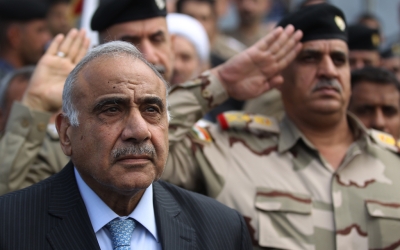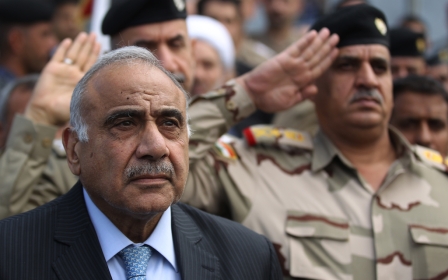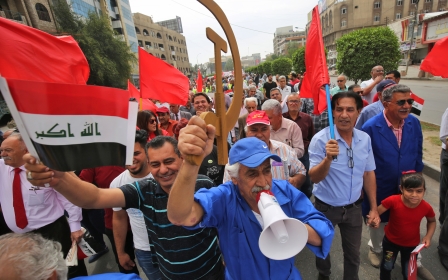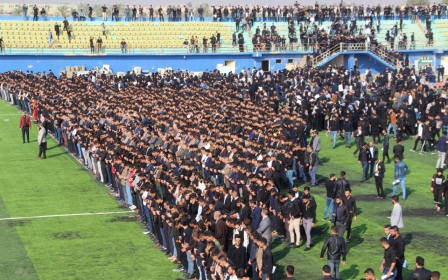Iraqi protesters torch Iranian consulate in Najaf for second time in a week
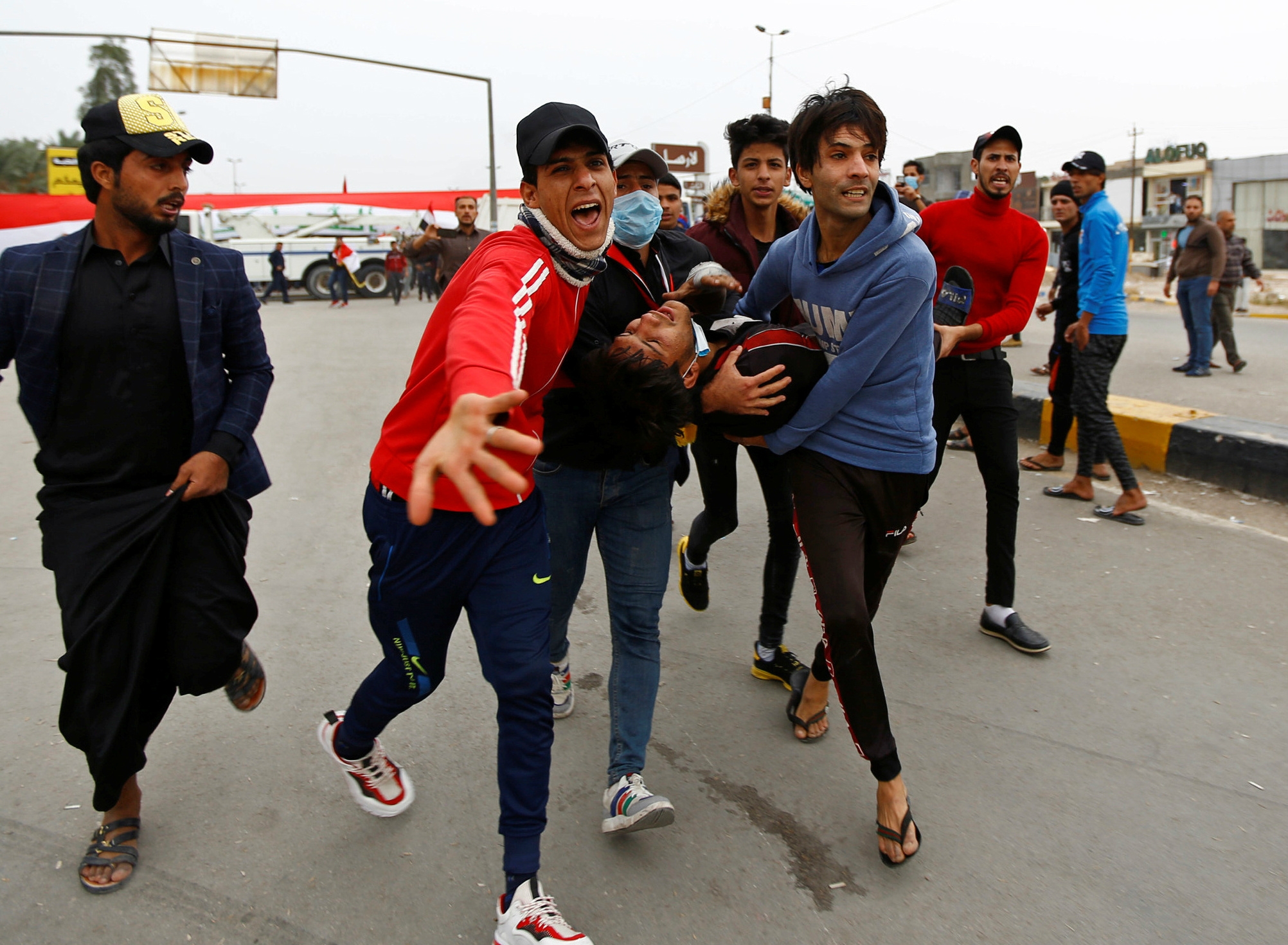
Anti-government protesters have set fire to the Iranian consulate in the southern Iraqi holy city of Najaf for the second time in a week.
The torching on Sunday came despite the approval by Iraq's parliament earlier in the day of the resignation of Prime Minister Adel Abdul Mahdi's government after two months of protests and violent police crackdowns that have left at least 420 people dead and more than 15,000 injured.
New MEE newsletter: Jerusalem Dispatch
Sign up to get the latest insights and analysis on Israel-Palestine, alongside Turkey Unpacked and other MEE newsletters
On Saturday, protesters set fire to the entrance of a shrine in Najaf as security forces fired tear gas to disperse them.
Video footage showed a doorway to the Hakim shrine blazing as protesters cheered and filmed it on their mobile phones.
Iraqis continued to take to the streets of Baghdad and the country's Shia-majority south on Sunday to demand more jobs, an end to endemic corruption, and improved public services.
Security forces killed one protester and wounded nine others near a bridge in the capital on Sunday, police and a medical source said.
In Nasiriyah, two protesters died on Sunday from wounds sustained in previous clashes with security forces, the Reuters news agency reported.
'Iran out of Iraq'
Angry crowds in Najaf set fire to the Iranian consulate last Wednesday, chanting “Iran out of Iraq.”
Iran is seen by many Iraqis as a supporter of the ruling establishment in Iraq.
Staff at the consulate managed to flee just before protesters stormed the building. Earlier in November, the Iranian consulate in Karbala was targeted by protesters.
Safaa Wahim, a resident of Baghdad, told Middle East Eye: "Torching the Iranian consulate again represents Iraqis response to Iran's interference in Iraq’s internal issues, as well as a warning to Iranian authorities that Iraq's protests are an internal matter and do not need any outside intervention.
“Might someone ask why Iran’s diplomatic offices are targeted periodically? The answer is very easy, namely that statements from Iran's president and Iranian religious figures were very provocative for Iraqis.
"Moreover, because of Iran-backed militias, dozens of protesters have been killed by snipers or their live bullets, and Iraq’s government has taken no tangible measures to protect the unarmed protesters."
'The weakness of Iraqi statesmen'
Iraqi MP Sarkawt Shamsulddin, a member of the Future parliamentary bloc, told MEE: “I don't think torching the Iranian consulate will lead to the elimination of the political influence of Iran in Iraq, or any country, or that it will jeopardize Iraq's diplomatic relations with Iran.
“In order to eliminate the foregin influence in Iraq affairs, we need to strengthen Iraq’s institutions and support Iraqi institutions, that's the only way."
Shamsulddin said Iraqis needed to hold their officials accountable to make sure they made their decisions based on Iraq's interests.
"When people are angry at a foreign country, it means a lot. It means people believe that that country is playing a role in their internal affairs," he said.
"However, it is the weakness of Iraqi statesmen who allow themselves to be directed by others."
Iraq's foreign ministry said the earlier attacks on Iranian diplomatic buildings were "aimed at damaging the historical relations between Iraq and Iran".
Iran’s foreign ministry has blamed Baghdad for failing to protect the consulate and has demanded decisive action against "aggressors".
'A direct message to Qassem Soleimani'
Karrar Al-Assaf, an eyewitness in Najaf, told MEE: "The second torching of the Iranian consulate is a clear messages sent by Iraqis that they do not desire an Iranian presence in the country.
"It is an expression of the anger of protesters to what Iran has done in Iraq."
The latest unrest, which began on 1 October, poses the biggest challenge for Iraq since Islamic State seized swathes of Iraqi and Syrian territory in 2014.
It pits the mostly young, disaffected and unemployed against a government backed by Iran and accused of squandering Iraq's oil wealth, while infrastructure and living standards deteriorate.
Raad Hashim, an Iraqi political analyst, told MEE: "[The attacks on the consulate] represents Iraqis' insistence on defying Iran and its penetration in the country, and a direct message to Qassem Soleimani (the head of Iran's Quds Force) to stop his interference in Iraq's affairs.
"Moreover, it is a strong message for turning the table to end the mullahs regime in Iraq and subdue the Iran-backed religious clerics and decrease the impact of [Iranian]-supported militias."
Reuters and AFP contributed to this report.
Middle East Eye delivers independent and unrivalled coverage and analysis of the Middle East, North Africa and beyond. To learn more about republishing this content and the associated fees, please fill out this form. More about MEE can be found here.


